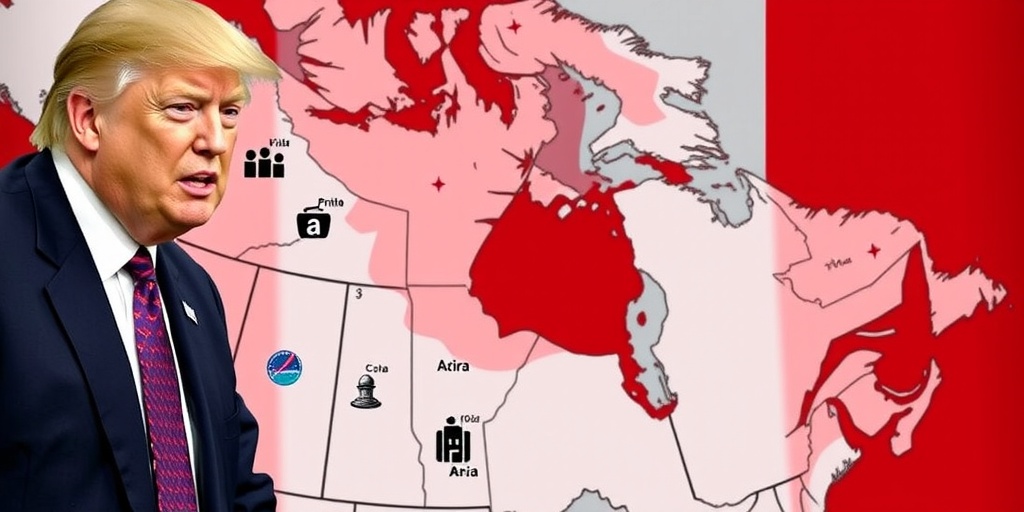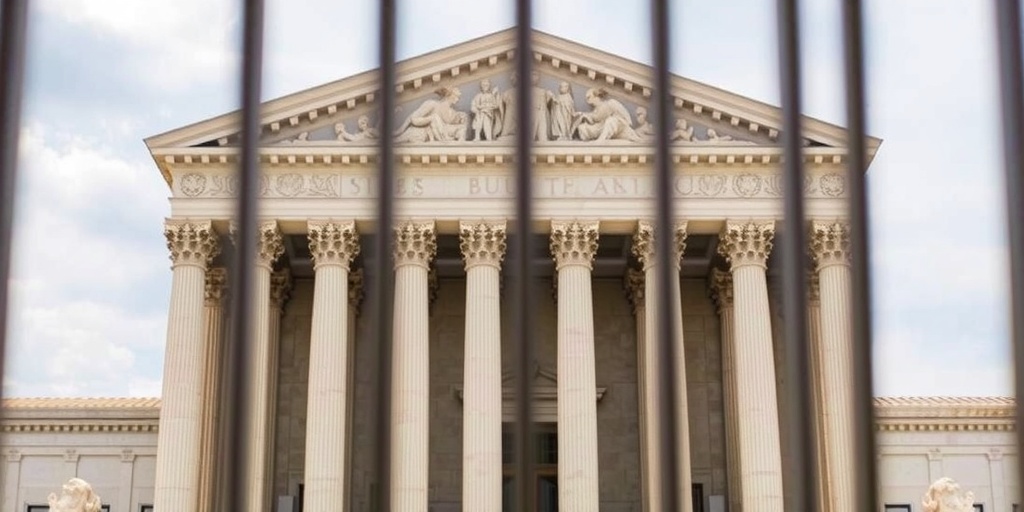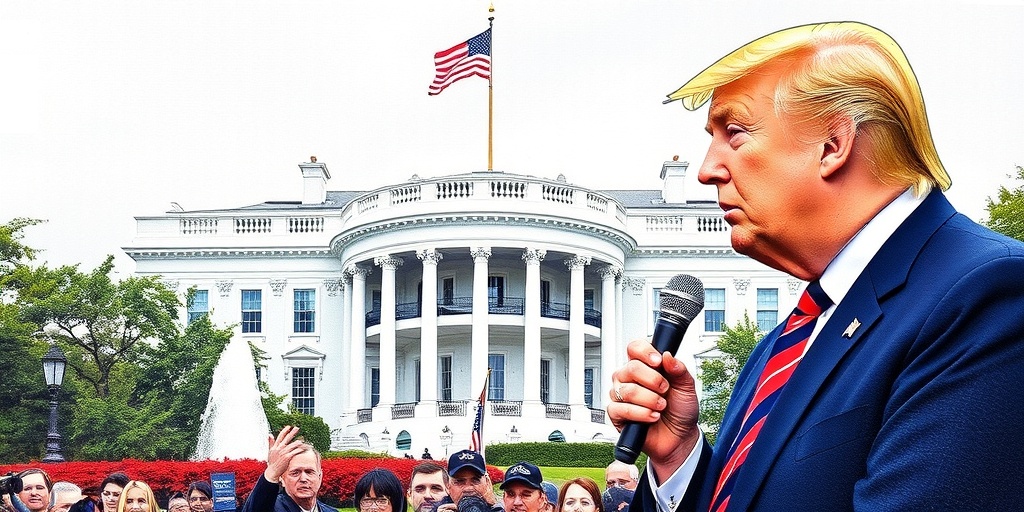Now Reading: Trump’s Idea of Canada as 51st State May Benefit Democrats Electoral
-
01
Trump’s Idea of Canada as 51st State May Benefit Democrats Electoral
Trump’s Idea of Canada as 51st State May Benefit Democrats Electoral

Title: The Controversial Proposal: What if Canada Became the 51st State?
As former President Donald Trump continues to suggest the radical idea of Canada joining the United States as the “51st state,” a curious dialogue has emerged within the political landscape. While mainstream media have largely dismissed this concept as a fantastical notion, it has sparked interesting discussions among political strategists and members of the Democratic Party, who contemplate the potential electoral ramifications should it ever come to fruition.
In recent remarks, Trump has repeatedly expressed his desire for Canada to become part of the United States. However, the reality is starkly different; Canada has made it abundantly clear that it has no interest in joining its southern neighbor. The concept of forced annexation appears far-fetched, as the U.S. is unlikely to resort to military action to resolve what many deem a light-hearted proposition. Nonetheless, if Trump’s imperial aspirations were to materialize, they might inadvertently sabotage the electoral future of the Republican Party.
Canada’s political and social landscape is vastly different from Trump’s vision for America. Characterized by universal health care, progressive immigration policies, and a strong commitment to environmental issues, Canada does not align with the ideologies espoused by the MAGA movement. An analysis of voting patterns suggests that making Canada a state could significantly shift political power dynamics in the U.S. According to early studies, admitting Canada could alter control in the House of Representatives, decrease the Republican majority in the Senate, and complicate future presidential elections for the GOP.
Former Democratic Representative Steve Israel voiced a surprising agreement with Trump’s proposition, stating, “Canada is largely left of center, and making it the 51st state means more Democrats in Congress and Electoral College votes.” This sentiment reflects a growing acknowledgment that while the idea is strikingly outlandish, its implications could favor Democratic aspirations in Congress.
Amid this political speculation, it remains unclear whether Trump himself recognizes the self-defeating nature of his proposal. His focus has traditionally been more on immediate political gains and less on creating a legacy that would bolster Republican prospects post-presidency. During his last campaign, he mistakenly suggested his Christian supporters would no longer need to vote if he were elected, revealing a disconnect with the realities of democratic processes.
While analysts like Douglas Heye, a seasoned Republican strategist, acknowledge that the prospect of annexation could benefit Democrats, they see Trump’s rhetoric as mere performance art meant to provoke responses rather than a serious policy discussion. “Trump thrives on controversy, and this talk serves as a diversion while he negotiates trade and other concessions,” Heye remarked.
Despite the improbability of Canada becoming a U.S. state, the idea has captured the imagination of political circles in Washington. With a population of 40 million and an expansive land area of 3.8 million square miles, Canada would emerge as the largest and most populous state, surpassing all existing states. However, a recent YouGov survey revealed that only 15 percent of Canadians support the notion of joining the United States, with a significant 77 percent firmly opposed.
The implications of Canada’s potential statehood would ripple through the electoral college and the balance of power in Congress. If Canada gained representation based on its population, assumptions and predictions suggest it would lean heavily Democratic. A survey showed that 64 percent of Canadians would have voted for Kamala Harris in the last election, while only 21 percent supported Trump. Such a shift could have inflated Harris’s electoral vote count, radically altering the Republican strategies in future campaigns.
The House of Representatives would bear similar consequences. According to political scientist John A. Tures, if the Canadian provinces were granted statehood, Republicans risk losing their slim majority, thereby empowering the Democrats. Furthermore, if Trump’s vision of Canada entering as a single state were to take shape, it would likely result in two new Senate seats for the Democrats, further trimming the current Republican majority in the Senate.
Additionally, if Canada were to be divided into its provinces and territories, Tures’s analysis predicted a more nuanced outcome: while conservative provinces like Alberta might yield Republican seats, many other provinces could lean Democrat, potentially flipping control.
Despite the tantalizing political dreams sparked by Trump’s rhetoric, it’s essential to remember that none of the Canadian provinces actually wish to join the United States. Most Canadians oppose the idea, regardless of political affiliation. Support for Trump’s ambition is particularly low among conservative Canadians, further emphasizing the improbability of such a political realignment.
As political discussions swirl around the concept of Canada as the 51st state, it is vital to recognize both the absurdity and the speculative allure of the conversation. While Trump may view it as a rhetorical device to challenge and provoke Canadians, many in the Democratic Party are happy to entertain the fantasy, contemplating the potential electoral advantages to be gained. “Canada is blue,” Israel concluded. “We’ll take all the help President Trump wants to give us.”
Stay Informed With the Latest & Most Important News
Previous Post
Next Post
-
 01New technology breakthrough has everyone talking right now
01New technology breakthrough has everyone talking right now -
 02Unbelievable life hack everyone needs to try today
02Unbelievable life hack everyone needs to try today -
 03Fascinating discovery found buried deep beneath the ocean
03Fascinating discovery found buried deep beneath the ocean -
 04Man invents genius device that solves everyday problems
04Man invents genius device that solves everyday problems -
 05Shocking discovery that changes what we know forever
05Shocking discovery that changes what we know forever -
 06Internet goes wild over celebrity’s unexpected fashion choice
06Internet goes wild over celebrity’s unexpected fashion choice -
 07Rare animal sighting stuns scientists and wildlife lovers
07Rare animal sighting stuns scientists and wildlife lovers




















